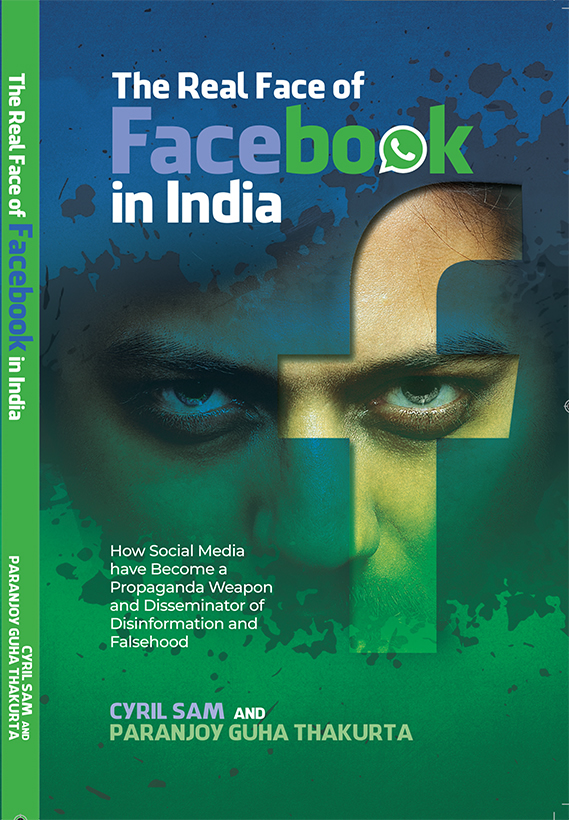Jo mera hai woh tera hai/ Jo tera hai woh mera (What is mine is yours; what is yours is mine.)
o run the first two lines of the Airtel “friendship” song for young people written by Amitabh Bhattacharya and set to a catchy tune by Ram Sampath. Catchy indeed, because the Department of Telecommunications (DoT) in the Government of India’s Ministry of Communications & Information Technology shares such a cosy, symbiotic relationship with the country’s largest telecom group, Bharti Airtel, that these lines seem invested with real world significance.
The draft report of the Comptroller & Auditor General (CAG) of India suggests that what belongs to the people of India – revenue earned from a scarce and finite natural resource, electro-magnetic spectrum – has been siphoned off by the country’s biggest telecom conglomerate, the Bharti Airtel group led by Sunil Bharti Mittal. This was possible thanks to the negligence, if not active connivance, of politicians, bureaucrats and technocrats who operated out of Sanchar Bhavan, the imposing building in the heart of the national capital which houses the DoT’s headquarters.
In our first article, we detailed how the group gained around Rs 44,000 crore through a complex set of corporate restructuring moves detailed by the CAG in the period between April 2006 and March 2010. In this part, we examine the CAG’s allegation that during these 48 months the Bharti Airtel group suppressed and misreported revenue to reduce payment of licence fees and spectrum usage charges to the extent of nearly Rs 14,500 crore.
The CAG’s findings have wider implications because the under-reporting of revenue that it says Airtel engaged in could well turn out to be an industry-wide practice across all private telecom companies, costing the government an even larger sum in lost revenue.
Why revenue counts
In September 2014, the Supreme Court ruled that the CAG, the constitutional body mandated to oversee public finances, could examine accounts of private telecom companies that have entered into a revenue-sharing agreement with the government. After the first such audit was conducted on the country’s biggest telecom group, the CAG drafted a report which alleges that by virtue of a series of ruses, the DoT granted Bharti Airtel and its subsidiary, Bharti Hexacom, undue benefits by allowing it to under-report revenues.
The CAG report is divided into seven chapters, the fourth of which contains findings about how the group arrived at figures of gross revenue for estimating “adjusted gross revenue”, or AGR. The AGR estimate is critical to the accounting of telecom companies because operators are required to share 8% of their gross revenues, duly adjusted for permissible deductions, with the government for payment of licence fees (LF) and spectrum usage charges (SUC) as per the terms of licence agreements.
The auditors, while checking the receipts of Bharti Airtel and Bharti Hexacom to ensure that the government had indeed received its due share, were astonished to note that around Rs 14,500 crore had wrongly accrued to the group flagship and its subsidiary over a four year period. Instances of evasion and avoidance of payment of LF and SUC were scrupulously documented. The CAG alleged under reporting of revenue in AGR statements, in primary books of accounts (trial balances), in P&L accounts and on prepaid, postpaid and roaming services.
Further, it was claimed by the CAG that there has been short-payment or non-payment of revenue earned from infrastructure sharing from other telecom operators and also on transactions in foreign currencies. In addition, interest income was not considered while estimating AGR. Bharti Airtel’s interest free loan to a subsidiary resulted in avoidance of payment of LF and SUC. The group also did not consider income from investments while calculating AGR.
The draft CAG report has also questioned the group flagship company’s transactions with another entity in the group, Bharti Aquanet Limited. It has alleged that the company did not consider revenue from global operations and profits from the sale of fixed assets while paying the government LF and SUC. Moreover, the company allegedly deducted written-off bad debts from estimates of gross revenue, claimed deductions for its PSTN (public switched telephone network) against leased line charges in an irregular manner in 2006-07 and did not consider revenue from sale/lease of bandwidth charges while calculating AGR.
The seventh chapter in the draft CAG report claims the DoT extended an “undue favour” to Bharti Airtel by administrative allocation and extension of validity of 2×6 MHz spectrum in 168 cities in the 3.3 GHz band. This, the report suggests, led to an “advantage” of Rs 5,781.72 crore to the group over the four-year period for which the audit was conducted. In addition, the Controllers of Communications Accounts (CCAs) in the DoT wrongly allowed the company to deduct a sum of Rs 34.90 crore while estimating AGR, the CAG has alleged.
Expenses wrongly deducted to reduce revenue
Gross revenue is supposed to be inclusive of all types of revenue without any set-off for related items of expense. The CAG has, however, claimed that Bharti Airtel and its subsidiary Bharti Hexacpom debited the following expenses from its revenue:
- margin and commission to distributors and agents
- free air time to customers
- free of cost coupons, cards and subscriber identity modules (SIMs) to customers and dealers
- promotional offers to customers
- full talk time (FTT) to customers
- other adjustments offered to customers.
Bharti Airtel group companies also, on occasions, debited sales commissions/margins to the revenue head, indicating that revenue was getting netted-off in violation of licence conditions. The commission/margin paid to the distributor/franchises/agents/dealers should have been in the nature of expenses, the CAG argues, adding that, therefore, netting of such expenses with revenue is against the license condition.
The CAG further alleges a service tax fudge of sorts. Service tax that should have been paid on the maximum retail price (MRP) of the start-up kits, recharge coupons or e-recharge was paid on the lower prices at which they were sold to the distributors, agents or dealers. This implies that Rs 1,070.79 crore had been deducted from revenue on account of commission/margins on which neither LF nor SUC was paid. The CAG is of the view that this amount should be added back to GR/AGR.
Bharti Airtel also deducted Rs 615.60 crore from its revenue on account of free air time (FAT) on which it paid no LF and SUC between 2006-07 and 2009-10. Further, though some of the free of cost (FOC) coupons/cards/SIMs given to the subscribers/dealers were booked under expenditure heads, some were also debited upfront from the estimate of revenue. The total amount deducted from revenue on account of FOC coupons, cards and SIMs in the four years was Rs 43.45 crore on which, again, no LF and SUC was paid. There was also deferment of revenue with Bharti Airtel and Bharti Hexagon deducting expenses on margins, commissions and promotions.
Here’s an example: if the MRP of a recharge voucher was Rs 100 and the commission or offer was Rs 10, the company made an entry at the time of the sale as “liability credit” of Rs 100, “sundry debtor” or bank debit of Rs 90 and “revenue debit” of Rs 10. Thus, the company, instead of debiting expenses by Rs 10, actually debited revenue by Rs 10. Only after utilization of the talk time, was the amount transferred to revenue from liability. The debit entry of these commissions and offers were made on the last date of the month and the average depletion rate of liability of the company was more than two weeks. Consequently, the total revenue booked was only Rs 90 (revenue first debited Rs 10 and then credited Rs 100). Additionally, revenue of the previous month amounting to Rs 10 also got deferred by about a month at least.
The draft audit report claims that this not only resulted in netting-off of revenue by the value of commission/offers etc. granted to customers/dealers but also deferment of LF and SUC on the value of such offers by at least one month. As the LF and SUC are paid on quarterly basis, the value of such commissions and offers that are debited or deducted during the months of June, September, December and March have implications for deferment of payment of LF and SUC by at least three months.
This deduction or debit entry to the revenue is a continuous process as payment of commission or margin to dealers and offers to subscribers have been made almost every month. The CAG further alleged that the Bharti Airtel had not paid LF and SUC on a definite amount (the value of commission, offers and such like to customers and dealers) and that this sum had gone up year after year.
he table shows that Rs 25.34 crore was deducted in the month of June 2006 and this figure trebled to Rs 76.36 crore during March 2010 at the end of the audit period. The monthly average deductions more than trebled from Rs 20.55 crore in 2006-07 to Rs 66.98 crore in 2009-10. This implies that during 2006-07, 2007-08, 2008-09 and 2009-10, LF and SUC on revenue of Rs 20.55 crore, Rs 35.51 crore, Rs 54.21 crore and Rs 66.98 crore respectively (on an average) were deferred.
This, in turn, meant losses to the exchequer thanks to the DoT looking the other way. And the loss to the government was, but obviously, Airtel’s gain. The total loss for the period between 2006-07 and 2009-10 works out to more than Rs 14,361 crore (as will be apparent from a look at the four pages of the report that have been annexed).
How do a few thousand crore rupees matter between friends when what is one’s is also the other’s?
-
Written with Aditi Roy Ghatak


